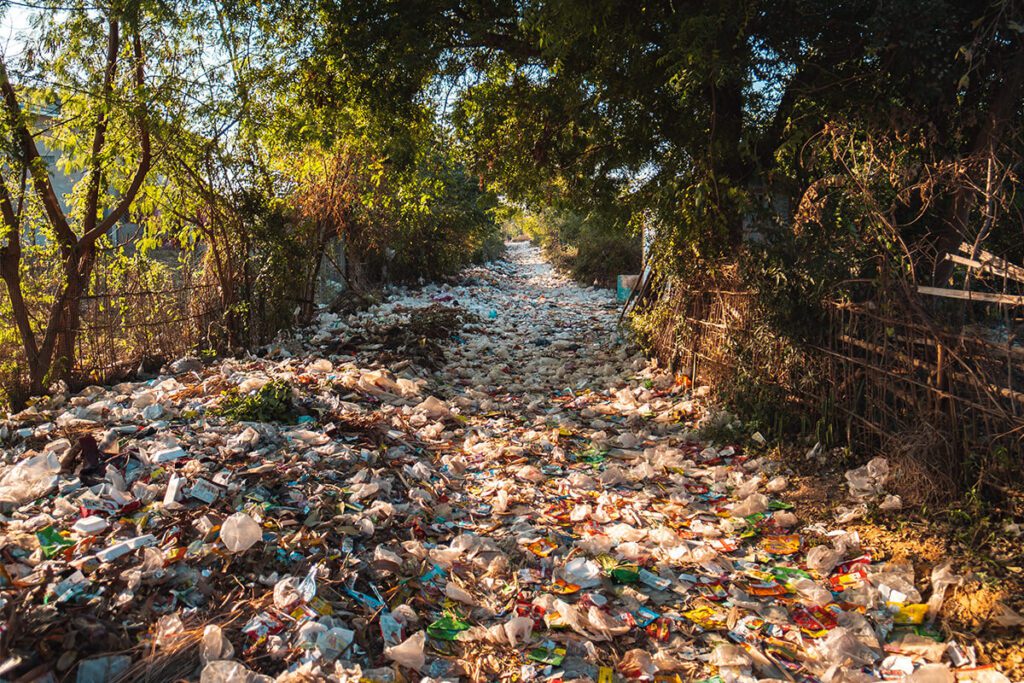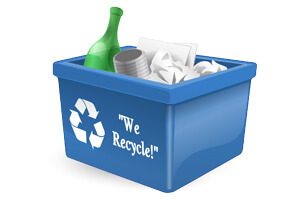

Plastic waste is one of the biggest and most harmful among all yet, it continues to rise. This global plastic issue is complicated. Many cities in different parts of the world have banned the use of single-use plastic bags.
While some cities have halted the progress by keeping the ban on hold. This is being seen in a number of US cities. As per the US organisation UPSTREAM, much of this is the consequence of the push and misinformation spread by the plastic industry.
Such instances serve as a major roadblock in the smart city goals to reach zero carbon emissions. Carbon Emission Report 2019 provides a glimpse of where the nations are heading. The year 2020 has taken a new turn all together with the pandemic. But even before discussing that, we look into the positive growth in smart city waste management.
A One-Stop Waste Management Hub


The US-based specialist software company Rubicon has taken the city-government arm of its waste management and recycling solutions to the global Geotab marketplace. Geotab is a commercial telematics vendor with more than 40,000 customers.
Through its marketplace, it has developed a global ecosystem of business-oriented applications to help organizations improve their fleet management. Through this initiative, Rubicon intends to support city governments in running their sustainable waste and recycling operations effectively and efficiently.
Its technology suite is currently being used in over 50 cities in the US. The application is called ‘RUBICONSmartCity’ which is designed to improve service and reduce costs. It equips city partners with a comprehensive software system that helps in managing municipal waste and recycling collection in residential and commercial areas.
Every year, city governments invest millions in waste and recycling collection. This technology shows the potential to save more than $200 million for taxpayers across several US cities in a 10-year period. This is as per Rubicon’s inaugural Environmental, Social, and Governance (ESG) Report.
RUBICONSmartCity has gathered data and insights that claim to deliver direct taxpayer savings for cities. For instance, the city of Atlanta in Georgia has already obtained over $750,000 in annual savings with this technology. As per Michael Allegretti, chief strategy officer at Rubicon, the company aims to end the waste of all forms.
They aim at helping their customers streamline their waste and recycling operations to achieve sustainability goals. In 2019, Rubicon entered a partnership with Odakyu Group in Japan to deploy its technology solutions. It was with the same vision to end waste in Japan.
Doughnut Economy Of Amsterdam
Recently, the City of Amsterdam launched its circular strategy 2020-2025. It includes the actions to reduce the use of new raw materials by 50%. And by 2050, the city intends to achieve 100% circular economy. It will only reuse raw materials to avoid waste and mitigate carbon emissions.
In line with the efforts, Amsterdam is developing a monitoring tool to track raw materials. It will also evaluate which initiatives become the biggest contributors to circular economy goals. The city strategy is based on “the world’s first City Doughnut” economic model developed by Kate Raworth.
She is a senior research associate at Oxford University’s Environmental Change Institute. Based on her book Doughnut Economics: Seven Ways to Think Like a 21st-Century Economist she adapted the Amsterdam City Doughnut.
The outside ring of the doughnut represents the ecological limits of the planet, including climate change and ozone layer depletion. The inside ring describes the “social foundation” for a good life. It includes income, work, social networks, health, and political participation. In between these two rings lies “a thriving city” where people and the planet’s needs are being met.
According to the City of Amsterdam, they are looking at the economy with new spectacles of how they produce, process, and consume. For consumers, this indicates “using the product longer, and sharing and repairing them more and more.”
This will also help the city overcome the effects of the COVID-19 crisis. This is said by the Amsterdam deputy mayor, Marieke van Doorninck to The Guardian. With the strategy, the city is aiming to reduce food waste by 50% by 2030. The surplus will be delivered to residents who need it most.
Amsterdam will also implement stricter regulations in construction tenders. For example, buildings will get a ‘materials, passport’ so that demolition companies can determine the valuable materials that can be reused. The city is already working with businesses and research organisations on over 200 different projects.
New Waste Management Measures
The novel coronavirus pandemic has brought about a dramatic increase in medical waste. A quote by the vice-president of European Commission Frans Timmermans has been tremendously shared over the internet.
“I really did not appreciate people writing to me and used the need for personal protective equipment as a reason not to have a ban on single-use plastics – there’s really no relationship.”
The outbreak has led to the use of new types of single-use waste: face masks and gloves. This waste can now be found on the streets and in the oceans. The safest way to protect ourselves is by washing hands or disinfecting them instead of wearing gloves.
This is as per international organisation Health Care Without Harm. Even epidemiologists have enlightened us with the fact that gloves have to be sanitised before touching anything. Hence, they are useless unless you are working in healthcare or preparing food.
And as far as face masks are concerned, there have been rules to allow reuse of masks for medical workers. For instance, a hospital facility in Boston can sanitize up to 2000 medical masks per day.
Moreover, medical waste shouldn’t be incinerated. Only treating them in autoclaves and microwaving systems kills any resistant pathogens. There have also been challenges like separate waste collection stopped in many countries.
This was either from infected people or because many recycling centers shut down temporarily. As a matter of fact, there is no evidence that waste transmits the COVID-19 virus. With proper safety measures in places, separate collection, recycling, and composting can go on as usual.
Solutions From UN Environment Programme Expert
A UN Environment Programme expert talks about medical waste management to HealthManagement.org in its latest COVID-19 Management Journal.
Challenges
Improper treatment and disposal of healthcare waste can result in serious hazards of secondary disease transmission. Because it can expose an individual to infectious agents. Open burning of the waste without pollution control can expose waste workers and the surrounding community to toxic contaminants.
Solution
Waste management should be locally determined by the proper selection of technologies for destruction and decontamination. For example, specific technologies like incineration may be effective when equipment is well maintained. It should be carried out with stringent monitoring and legal oversight.
Importance Of Waste Segregation
Segregation is an essential element in efficient healthcare waste management. Separating hazardous waste from non-hazardous waste can hugely decrease the amount of waste requiring specialized treatment.
COVID-19 Waste Impact
There has been a massive surge in the use of personal protective equipment such as masks. Not just in healthcare facilities, but also in households everywhere on the planet. A major part of this equipment is improperly collected and it now almost certainly makes its way into unmanaged landfills.
For Smart Cities
The best way to destroy COVID-19-related medical waste is by using existing, tried and tested healthcare waste management systems. If unavailable, temporary operational adjustments should be there to protect healthcare workers handling waste.
Smart cities need to evaluate existing practices, develop and implement waste management plans as per set timelines. Alongside, it also requires periodic training, monitoring, and constant improvement.
Countries, cities, and organisations already having all this in place, including a disaster contingency planning are performing far better. They are able to deal with the rise in medical waste even during this pandemic.



































